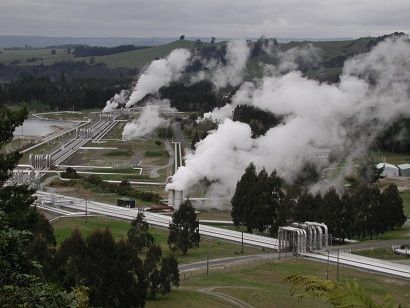Africa meeting to boost geothermal energy development
80 delegates convened in Nairobi last week to explore setting up the Africa Geothermal Centre of Excellence

Representatives of 13 African nations gathered in Nairobi last week to assess geothermal energy development as part of ongoing efforts to reduce reliance on fossil fuel resources and drive down greenhouse gas emissions.
About 80 delegates convened in the Kenyan capital to explore setting up the Africa Geothermal Centre of Excellence (AGCE), with the aim of boosting the continent's institutional and infrastructure capacities, and to increase the numbers of geothermal scientists and engineers.
Approximately 600 million people in Africa lack access to grid electricity and the figure is expected to reach 700 million by 2030.
The estimated 20,000 MW of geothermal energy resources across Africa has been noted by analysts as a potential solution to the continent's energy shortage.
This significant geothermal potential remains largely untapped, with the Africa facing a lack of skilled human resources in the sector and technological expertise.
African nations are planning to set up the AGCE to promote the development of skilled personnel and the sustainable use of geothermal expertise across the continent.
The two-day workshop assessed a feasibility study, which catalogues Africa’s requirements for geothermal development, drafts the AGCE's vision and evaluates its long-term viability.
The meeting was organised by the African Rift Geothermal Development Facility (ARGeo) of the United Nation Environment Programme (UNEP) and included government representatives, development partners, donors, civil society, private developers, technical institutions and academia.
The AGCE is expected to be based in Kenya, which is the main hub for geothermal technology in Africa and has a natural laboratory and a major geothermal agency already in place.
ARGeo, launched in November 2010, is funded by the Global Environment Facility and implemented by UNEP.
The project is designed to support the development of geothermal resources in East Africa and reduce greenhouse gas emissions by promoting geothermal energy use in the region.




